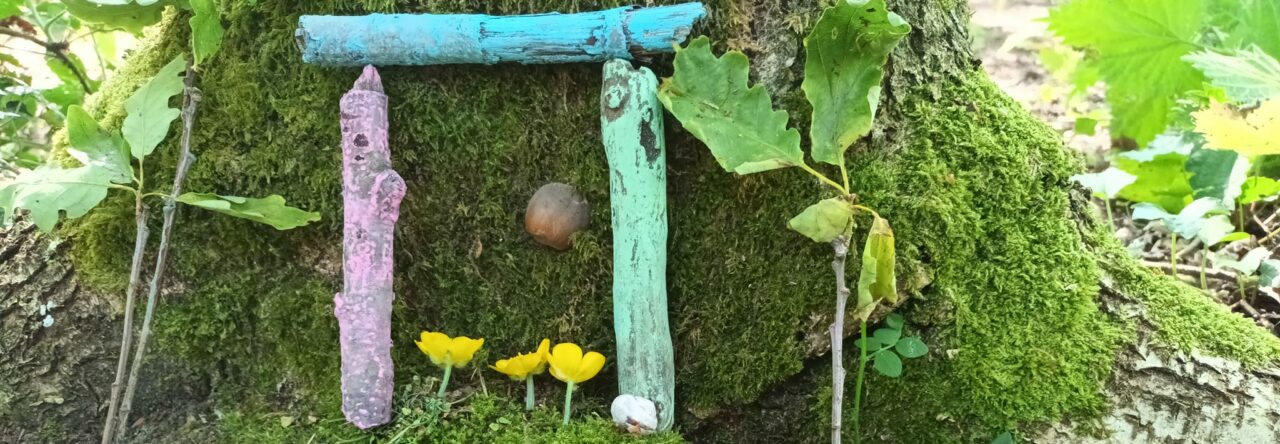
In every human culture, except perhaps this current one, there has always been the recognition of the intelligent unseen world. A world which we have little control over, which has its own rules which very few are privy to, and whose residents have extraordinary powers. Quite often these powers were the ability to bend the two things we were unable to – space and time. They could tell the future. They could prevent accidents, or, in same cases, cause them.
The need to placate, respect and acknowledge this world – which exists outside the main religions of the world – still exists in many modern cultures.
In Ireland these practises are still part of the landscape. Leaving hawthorn or fairy trees in fields for instance. Or tying charms and simples to rag trees. In honour of Halloween, we will be honouring one of these beings everyday of the week till the 31st. Today we look a the Tuatha Da Dannan.
Fallen Angels or Immortal Guardians/Gods??
The da Dannan and their stories most commonly linked to the Celts. They were the Third Race which occupied these lands. The first were the Fir Bolgs, then the terrifying Formorians and finally, they defeated them to take their place. The stories of the da Dannan are where we get the myths about Lugh, the Dagda, Brigid and even Cuchulainn who was supposed to have been the son of Lugh – or at least related to him.
Were they angels or ancient Gods? Every culture has stories which have parallels. It would appear that they did appear out of the mists – on boats – and that they were so certain of staying in Ireland that they burned their boats. Apparently the island was thick with smoke from this for days.
The Da Dannan were here for thousands of years – more likely a couple of thousand – and then it was their time to go. Sometimes they are credited with origin stories, like the very creation of Ireland itself. Even the battles they fight shape the very land creating lakes, mountains and rivers. The are not unlike the Norse, Greek or Teutonic Gods. It is hard to say since so many stories do run into each other.
The Miliseans
The final race were the Sons of Mil – the Milesians who had to ask permission of the Da Dannan to occupy the land. If you read the stories, it sounds like they did come from the Iberian peninsula. The Milesian bard Amergin weaves such a compelling song that the land accepts them and the Da Dannan then agree to disappear into the very land itself. Its rocks and streams, its rivers, hills and so forth become theirs. We will always we there they say before they disappear. This is our land and we will always be watching and listening.
Halloween is the one time of the year – the Celtic New Year – when they emerge. There are all kinds of stories about the fairies. During the Irish revival in the last 19th century Yeats, Lady Gregory and others who were very interested in reclaiming and preserving these stories collected them.
Perhaps there is no more chilling and charming depiction of this time and the influence the fairies had than William Alligham’s poem, The Fairies:
Up the airy mountain,
Down the rushy glen,
We daren’t go a-hunting
For fear of little men;
Wee folk, good folk,
Trooping all together;
Green jacket, red cap,
And white owl’s feather!
Down along the rocky shore
Some make their home,
They live on crispy pancakes
Of yellow tide-foam;
Some in the reeds
Of the black mountain-lake,
With frogs for their watchdogs,
All night awake.
High on the hill-top
The old King sits;
He is now so old and grey
He’s nigh lost his wits.
With a bridge of white mist
Columbkill he crosses,
On his stately journeys
From Slieveleague to Rosses;
Or going up with the music
On cold starry nights,
To sup with the Queen
Of the gay Northern Lights.
They stole little Bridget
For seven years long;
When she came down again
Her friends were all gone.
They took her lightly back,
Between the night and morrow,
They thought that she was fast asleep,
But she was dead with sorrow.
They have kept her ever since
Deep within the lake,
On a bed of fig-leaves,
Watching till she wake.
By the craggy hillside,
Through the mosses bare,
They have planted thorn trees
For my pleasure, here and there.
Is any man so daring
As dig them up in spite,
He shall find their sharpest thorns
In his bed at night.
Up the airy mountain,
Down the rushy glen,
We daren’t go a-hunting
For fear of little men;
Wee folk, good folk,
Trooping all together;
Green jacket, red cap,
And white owl’s feather!
Elements decided to bring a tiny bit of this fairy magic back to Halloween… come along and celebrate with us over the coming week.
Book here or email hello@elementsschool.net for more details.
